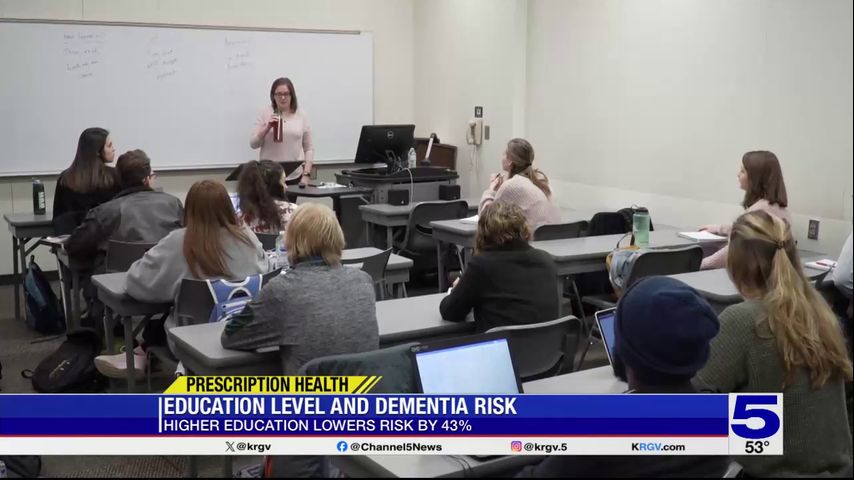Prescription Health: Education level and dementia risk
ORLANDO, Fla. (Ivanhoe Newswire) — Research has shown that diet and exercise can impact your dementia risk. But what about how much money you make and your education level? Dementia may not be so impartial when it comes to your socioeconomic status.
Every three seconds someone around the world will develop dementia.
“If you look at all the things we know that may be associated with the risk of developing dementia, the two strongest are age and family history,” said James E. Galvin, MD, MPH, professor of neurology and psychiatry at the University of Miami Miller School of Medicine.
But now research shows that your education level can be another big factor. Researchers at University College London found that people with a post-secondary education had a 43% lower chance of developing mild cognitive impairment, a condition that increases the risk for dementia.
“Those who don’t have any high school education at all are at the highest risk,” said Joshua D. Bundy, PhD, MPH, assistant professor at the Tulane University School of Public Health and Tropical Medicine.
Prof. Bundy didn’t take part in the U.K. research, but studies socioeconomic factors and how they relate to health disparities. In his study, education levels can have the greatest impact on your health since it affects your employment options and income. With lower income:
“Maybe you then don’t have access to health insurance,” Prof. Bundy explained.
In fact, the U.K. study found that being in the wealthiest third of the population was linked with a 26% lower chance of going from mild cognitive impairment to full blown dementia, signaling that having money to access treatments can make a difference and:
“All of these things are likely interrelated with one another,” Prof. Bundy said.
So your socioeconomic factors may be just as critical as your family history and lifestyle factors.
“Why have dementia if we can reduce those things we know are modifiable that are strongly associated with the risk of dementia?” asked Dr. Galvin.
The U.K. study also found that education can reverse cognitive impairment. Researchers found people with a post-secondary education and also those working in manual labor jobs were 81% more likely to improve from mild cognitive impairment with treatment.





